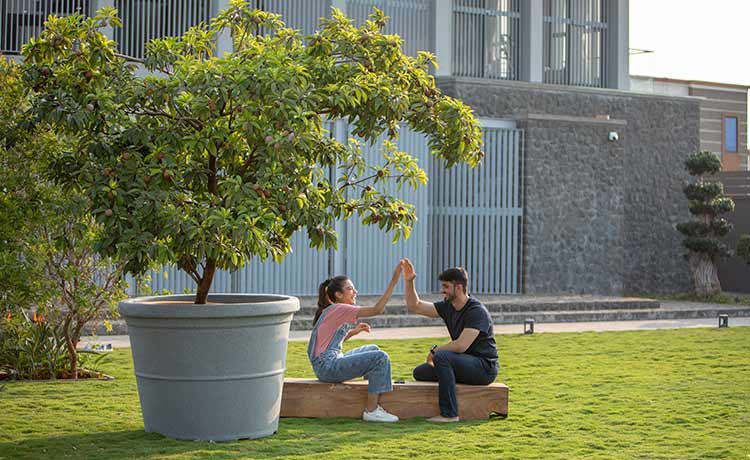As environmental concerns continue growing, many consumers seek eco-friendly alternatives for their everyday purchases, including plant pots. Offering sustainable wholesale plant pots benefits the environment and can help your business attract environmentally conscious customers and set your company apart from competitors. This article will explore various eco-friendly wholesale plant pots options and discuss how to incorporate them into your product offerings.
Types of Eco-Friendly Wholesale Plant Pots
- Biodegradable Plant Pots: Biodegradable plant pots are made from materials that naturally break down over time, reducing their environmental impact. These pots are typically made from coir, peat, or biodegradable plastics derived from plants. Biodegradable pots are an excellent option for customers looking to minimize waste and lessen their environmental footprint.
- Bamboo Plant Pots: Bamboo is a highly sustainable material due to its rapid growth rate and low environmental impact. Wholesale plant pots made from bamboo are eco-friendly, lightweight, durable, and visually appealing. Bamboo pots can attract customers seeking a sustainable yet stylish plant pot solution.
- Recycled Materials: Plant pots made from recycled materials such as plastic, metal, or glass are another eco-friendly option. Many recycled pots are also highly durable and weather-resistant, making them a practical choice for outdoor use.
- Reclaimed Wood Planters: Wooden planters made from recycled or salvaged wood can offer a sustainable and aesthetically pleasing alternative to traditional plant pots. Reclaimed wood planters can be sourced from old barns, fences, or pallets, giving them a unique, rustic appearance. This eco-friendly option can be beautiful to customers seeking a natural, organic aesthetic for their gardening spaces.
Incorporating Eco-Friendly Wholesale Plant Pots into Your Business
- Evaluate Your Current Product Offerings: Begin by assessing your existing inventory of wholesale plant pots to determine how many eco-friendly options you currently offer. This analysis will help you identify gaps in your product range and guide your efforts to expand your eco-friendly plant pot offerings.
- Research Suppliers: Various Research suppliers that specialize in eco-friendly wholesale plant pots to identify potential partners. Consider product quality, pricing, and availability factors when evaluating potential suppliers.
- Showcase Eco-Friendly Plant Pots: Prominently display your eco-friendly plant pots in your store or website to draw attention to these sustainable options. Consider creating a dedicated “Eco-Friendly” section to make it easy for customers to find and browse your sustainable plant pot offerings.
- Educate Your Customers: Educate your customers on the benefits of eco-friendly plant pots and how they can contribute to a more sustainable lifestyle. Provide information on the materials used, the environmental benefits, and proper disposal or recycling methods for each type of eco-friendly pot.
- Monitor Customer Feedback and Sales Data: Keep track of customer feedback and sales data to determine which eco-friendly wholesale plant pots resonate with your customers. Use this information to refine your product offerings and adjust your inventory accordingly.
In conclusion, offering eco-friendly wholesale plant pots can help your business appeal to environmentally-conscious consumers and differentiate your company in the competitive gardening industry. By exploring various sustainable plant pot options, such as biodegradable pots, bamboo pots, recycled materials, and reclaimed wood planters, and incorporating them into your product offerings, you can cater to the growing demand for eco-friendly gardening products. By actively promoting and educating customers about these sustainable options, your business can contribute to a greener future and attract a loyal customer base committed to supporting environmentally responsible practices. By staying abreast of emerging trends in eco-friendly products and continually updating your inventory to reflect these developments, your business can establish itself as a leader in sustainable gardening solutions, ensuring long-term success and a positive environmental impact.









